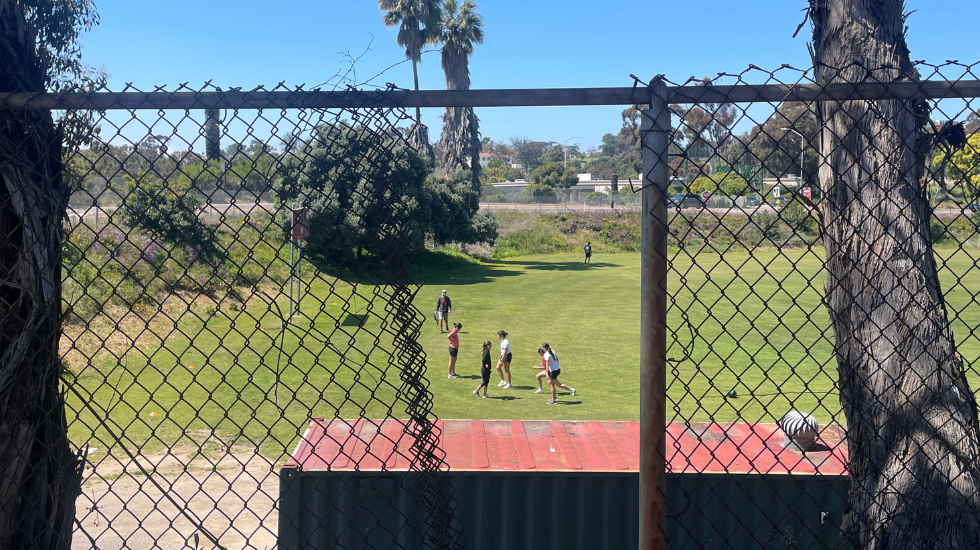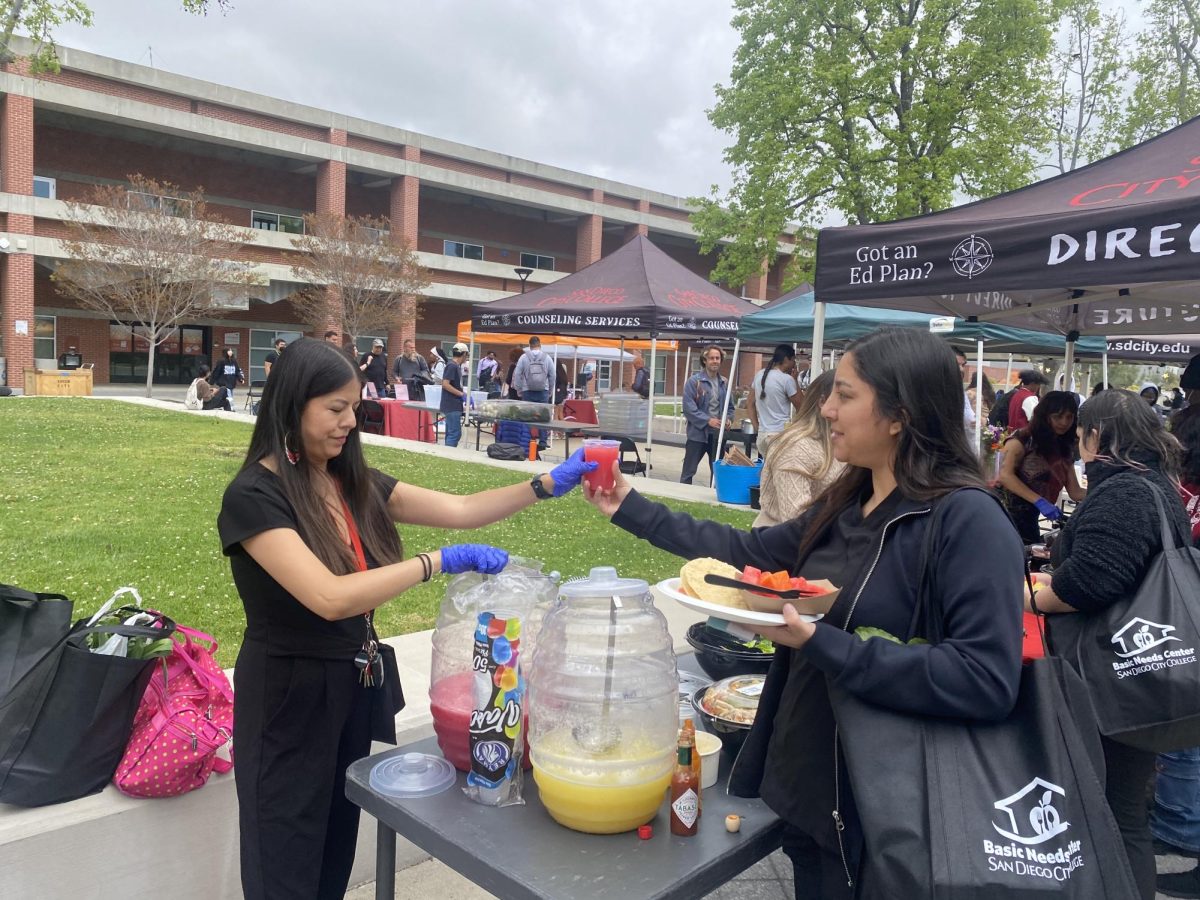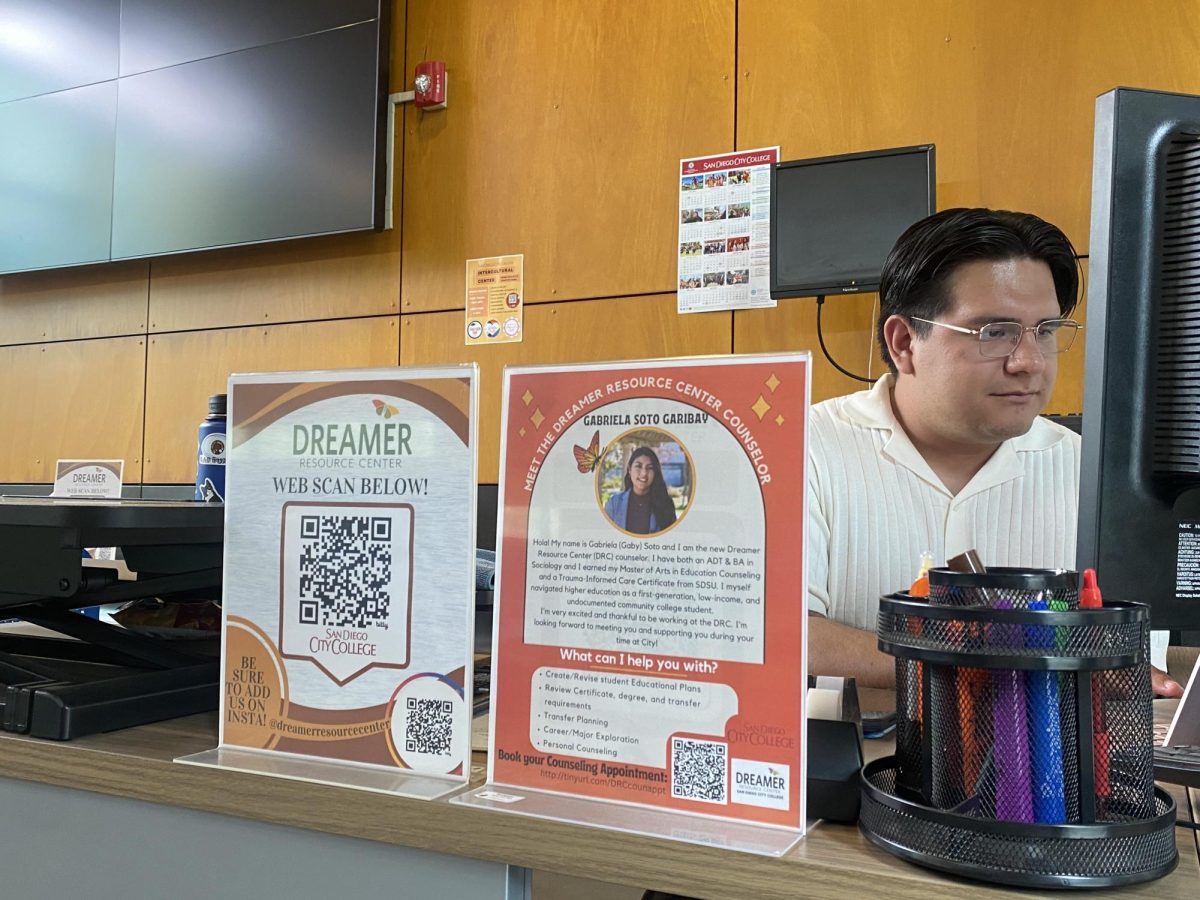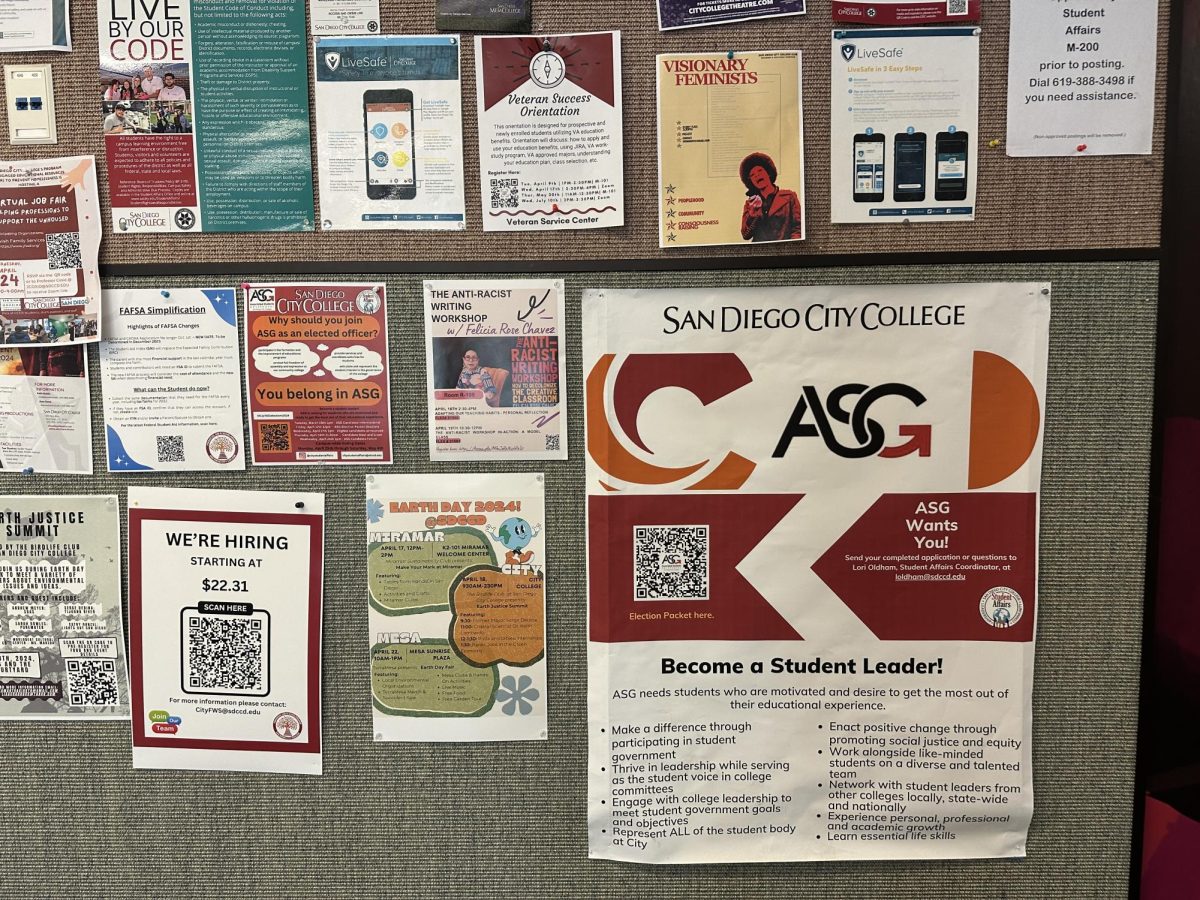A garden needs several ingredients in order to thrive: soil, sunlight, water, and money.
That’s why the folks at City College’s urban farm are selling off their locally grown crop every Tuesday morning at a weekly farmer’s market. This is the first semester a farmer’s market has been available on campus.
“We’re teaching people to buy food locally,” said Julia Dashe, co-manager of the urban farm’s daily operations.
“People want to buy locally grown food and cook it at home,” said Dashe, “because its cheaper.” By shopping locally, students can help create local food systems and increase food security, while leaving a smaller carbon footprint on the environment, said Dashe.
The urban farm sounds like a contradiction in terms: vegetable garden meets major metropolis. Visually, the farm appears to be nestled in a canyon of skyscrapers. Students may have noticed a produce-stand sprouting up weekly along the well-trodden walkway between Seville Theater and the library.
Colm Kenny, one of the farm’s interns, has been busy handling money and informing customers about the vegetables for sale.
“Our urban setting reinforces the message,” said Kenny. “The food is growing right here.” Kenny, an engineering major, has been working on the farm since December. “We made about 120 bucks last week,” he estimated. “And the proceeds will help with the costs of maintaining our farm.”
Colm enjoys working at the market because it’s a great stress reliever, plus there’s the fresh air.
A bounty of mixed-lettuce bags, green spinach, and other items were spread out on the table in front of Kenny. Behind him, the rest of the interns tended to the 1/8 acre farm. One of the more unusual items was the edible flowers, which make a colorful addition to a tossed salad.
The ability to generate money was the latest fruit of City College’s urban farm. Historically, in addition to its original funding, the farm has received donations from the community in a variety of ways. Everything from shovels to seeds to the hours of work put in by interns like Colm Kenny, has helped the farm branch out into the latest project: a farmer’s market.
“The salad mixes have been popular,” according to Colm. “There’s 3 to 4 types of lettuce in each bag and the blends vary week to week depending on what’s growing.
The latest benefactor to help out the urban farm was mother nature, who soaked City College this month in a succession of February rain showers.
“The rain mixed with this exuberant sun is making the plants explode,” said Ben Diamond, an environmental studies major who plans to transfer to UC Santa Cruz or Davis in the future. “The difference in growth is immense.”
Audrey El, an employee of the campus bookstore, was selling t-shirts and cloth bags, both adorned with the urban farm logo. She is also a farmer’s market customer. “I bought a bag of lettuce last week and split it with my supervisor,” said El. “I added dressing, oil and vinegar, and some chicken.”
Julia Dashe also mentioned how the farmer’s market can provide students more than just a healthy alternative to a cafeteria lunch. “You save money by not driving to the grocery store.”
Students may visit the farmer’s market every Tuesday from 9:30-11:00AM, next to the library.
You can help out the urban farm by volunteering or donating items from their wish list, which can be found online:
http://downtownonthefarm.typepad.com/downtown_on_the_farm/







